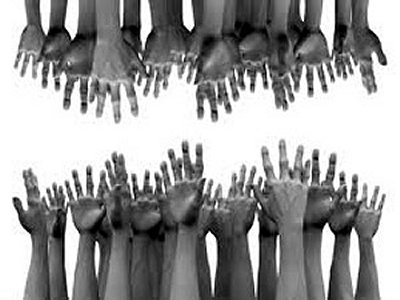
THE MOST DEBASED WORD IN THE ENGLISH LANGUAGE
We can’t stop talking about community today, yet there is less of it about than when Baroness Thatcher seemed to deny the existence of society
Eighties retro evenings (shoulder pads, big hair, Spandau Ballet) have recently been supplanted by politics, as the death of Baroness Thatcher reminded us both of her stature and divisiveness in British life. It is odd that perhaps her most famous saying: ‘there is no such thing as society’ should have been made in the course of a softer interview with Woman’s Own magazine. Even if it has sometimes been wrenched out of context, her assertion that instead ‘there are individual men and women, and there are families’ gives a strong indication of her political philosophy. Perhaps the notion of society smelled too pungently of leftist, academic thinking; the idea that a larger whole should be broken down into its smallest constituent parts, however, held its own inherent flaws.
This was demonstrated in the commitment to deregulate all shop opening hours to enable unrestricted Sunday trading. When confronted over the impact this would make on the day of rest, Baroness Thatcher remarked that individuals could keep their own day of rest when it suited them, thus overlooking the value to the community of a shared day of rest where relationships could be pursued because most people were off work. While she championed individual liberty, this was not coherently placed in the matrix of wider relationships which gives meaning and enables flourishing. The impact of the loss of Sunday as a distinctive day in the week has not been seriously reviewed, but among the casualties is likely to be family relationships, personal well-being and a sense that there are deeper values than the ability to buy and sell which one special day witnessed to.
Since then, the idea of community has come to the heart of public debate; every noun is suffixed by it, making it the most over-used and thereby most debased word in the English language. This reached a nadir for me recently when I read a police statement warning of the dangers that a particular man posed to ‘the female community’ (what happened to the word ‘women’?). The more we talk about it, the more elusive it becomes as a meaningful epithet and herein lies the paradox. When Baroness Thatcher decried the existence of society, there were many ways in which it was thriving; as we celebrate the emergence of community today, there are fewer ways in which we cohere as British society.
Developments which have eroded our sense of togetherness include: job mobility, where relocation fractures the extended family, separating children from parents and grandparents; marriage breakdown, which is commonplace and isolates households which have endured it; the centralisation of power, which has weakened local bonds; technology, which has expanded our horizons but robbed us of focus on our surroundings. To this may be added an unprecedented growth in immigration, allied to the ideology of multiculturalism, which has afforded some new immigrant communities the permission not to mix. The lack of debate around this question, fostered by guilt and an anxiety not to appear racist, is allowing more extreme views on the matter to prevail. What it means to be British (see ‘What are British Values?’ in this website’s section ‘In the News’) is a question we become less able to answer as our community fragments, to the detriment of all.
In place of society we find emergent, niche communities which are interest-based, mediated and dispersed. New technology is the engine of these developments, which are likely to become normative as the youngest generation, utterly assimilated to this trend, matures. There are exciting dimensions to this, as people are increasingly connected across chasms of history, geography and culture, dissolving barriers, enabling understanding and expanding knowledge. However, historic notions of community may suffer. Just as in the 1980s, there is a failure of philosophy surrounding what it means to be a people. Real communities are nurtured by face to face contact, where there is genuine equality and over-lapping identities in a specific geographical area. Vaclav Havel defined community as a road with a butcher’s, a baker’s and a pub which people could cohere round. The very decline of these enterprises in our economy speaks volumes.
In its being, the local church sustains a witness to this sense of community. We meet with each other regularly and on an equal footing before the cross, people are welcomed whatever their identity and the most vulnerable are cared for and cherished. In spite of the emerging challenges facing many churches as society becomes more secular, our identity as a bona fide local community should inspire this witness and inform our public engagement.
POPULAR ARTICLES

Obama's Covert Wars
The use of drones is going to change warfare out of all recognition in the next decades.

Through A Glass Starkly
Images of traumatic incidents caught on mobile phone can be put to remarkable effect.

What Are British Values?
Is there a British identity and if so, what has shaped the values and institutions that form it?


